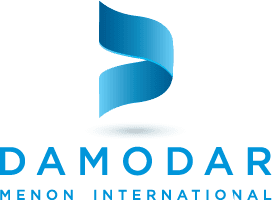The textile and Apparel industry is one of the largest industries in the world and is the most dynamic one, too. It offers the most significant employment opportunities across urban and rural sectors in India. However, the rapid changes in the textile industry – whether due to technology upgradation, changes in crop cultivation, customer needs, or new production processes – require knitted and woven manufacturers to stay on foot. Fabric companies in India have many complicated activities and challenges involved in the course of their textile manufacturing and distribution. Therefore, in order to stay on the right track, ISO certification becomes an indispensable asset for the textile industry. In this blog, we will discuss the importance and benefits of ISO certification for cotton, silk, synthetic, and viscose yarn manufacturers in India.
What is ISO Certification for the Textile and Apparel Industry?
ISO, the International Organization for Standardization, serves as a global platform that brings together experts from the textile industry to create voluntary international standards. The standard helps the industry's frontrunners foster innovation and manage challenges. The ISO standard for textile testing and management systems offers comprehensive guidelines across multiple processes and operations and contains hundreds of tests related to textiles.
ISO Certification is an essential link in the imperative relationship between the quality of raw materials and the quality of the final product. It helps textile manufacturers establish management systems that ensure product quality, workforce safety, and continuous interaction between business and stakeholders.
Textile manufacturing is complicated because it is geographically dispersed, with different operations performed in various parts of the world. Due to the decentralized nature of textile materials and production methods, ISO frequently develops new standards to address upgraded technologies and practices.
How ISO Certification Helps Textile Businesses
– It helps textile manufacturers establish efficient management systems that streamline processes and production.
– It allows effective and transparent communication across all organizational levels.
– It builds trust and recognition in customers.
– It improves customer satisfaction.
– It helps manufacturers identify risks on time and prevent them through risk-based decision-making.
– It ensures each employee is aware of the organization’s objective and its expectations from its workforce.
– It fosters continuous improvement in production, raw material procurement, and end product so that organizations are able to embrace change rather rapidly.
ISO Standards Required for the Textile Industry
ISO 9001 Standard Certification
The ISO 9001 standard helps organizations implement Quality Management Standards (QMS), ensuring the end product meets customer satisfaction in terms of quality. ISO 9001 standard has eight quality management principles that textile manufacturers must adhere to boost confidence among stakeholders regarding the quality standard of the end product as well as the process used.
ISO 9001 is an important element for the approval of orders, especially for export goods. It can be applied and obeyed by small to large organizations regardless of their activities. Why textile manufacturers should get ISO certification:
– To acknowledge a regulatory requirement specified by the market.
– To stay ahead of the competition, especially for the medical and technical textile
industry.
– If the opponent also needs to acquire the ISO certification.
– If vendors or customers require ISO certification.
ISO 14001 Standard Certification
The ISO 14001 Standard shows textile manufacturers’ commitment to the environment and compliance with all environmental laws and regulations. An ISO 14001-certified textile business actively looks for ways to reduce waste and carbon footprint through effective production processes. This includes dealing only with organic cotton suppliers, designing packaging with minimal plastic usage, or using recycled fabrics or recyclable elements to
produce textiles.
ISO 45001 and ISO 22301
With ISO 45001 Standard, textile businesses or organizations can implement a safe and healthy management system that fosters a safe workspace devoid of injuries, sickness, and machinery malfunction.
The ISO 22301 Standard states that the organization can endure unforeseen challenges, such as pandemics, floods, cyclones, acts of terrorism, political regulations, cyber-attacks, etc.
Benefits of ISO Certification for Fabric Companies in India
– Consistency in product quality, production method, supply chain, etc.
– Measured and monitored outcomes.
– Improved internal management.
– Globally recognized standard, improving trading opportunities.
– Better customer retention.
– Reduced liability costs.
– Improved business reputation.
– Can be obtained by small to large textile companies.
The medical textile and Apparel industry may need more than one ISO Standard certification due to the nature and usage of its end products. These include ISO 13485, ISO 9001, ISO 14001, ISO 45001, ISO 22301, and CE marking.
If you are looking for knitted and woven fabric manufacturers and cotton suppliers with ISO certification, connect with Damodar Menon International for a better trading experience. If you are searching for online buying and selling Textile fabric, TEXchange Global serves as the cornerstone for exports and imports, providing a platform for textile companies in India to connect and trade across international markets.
